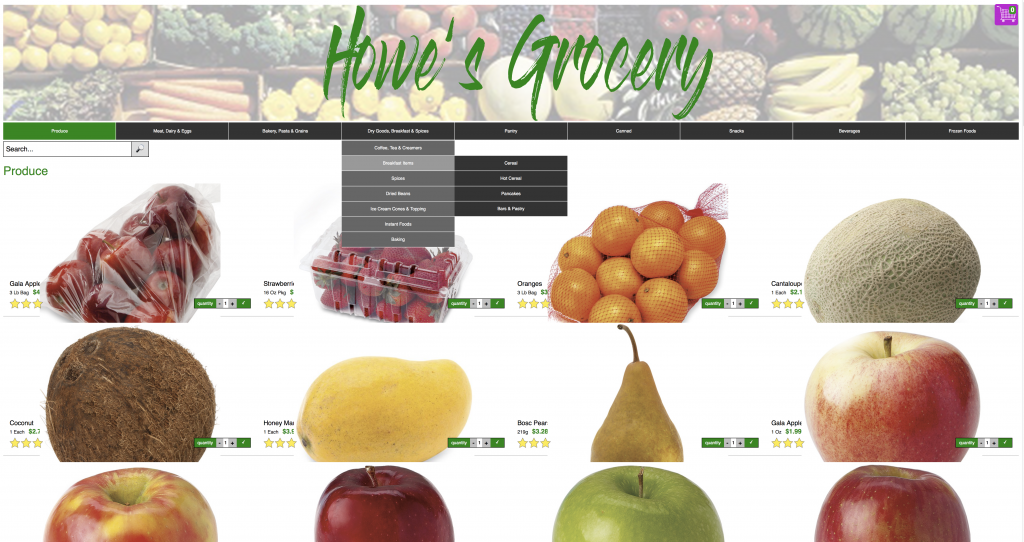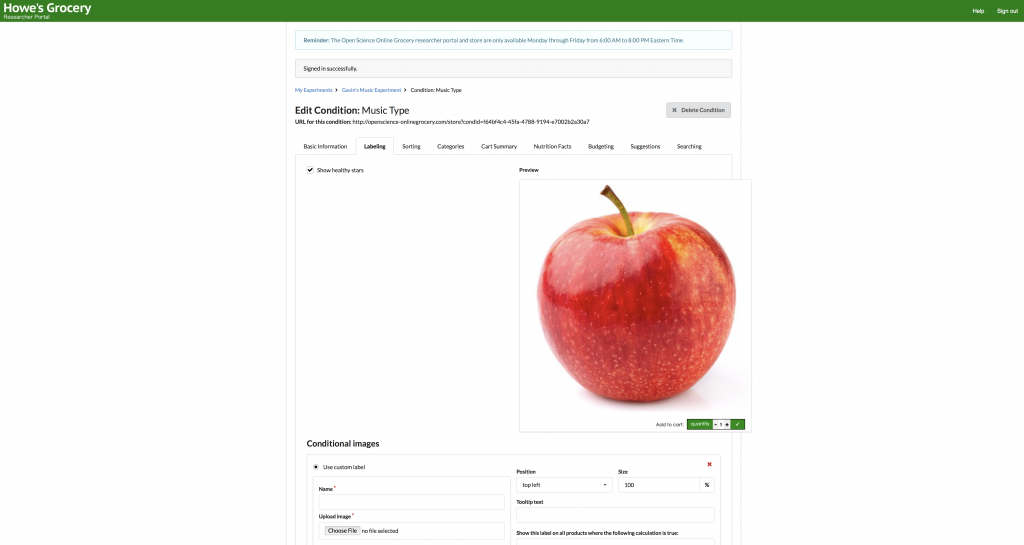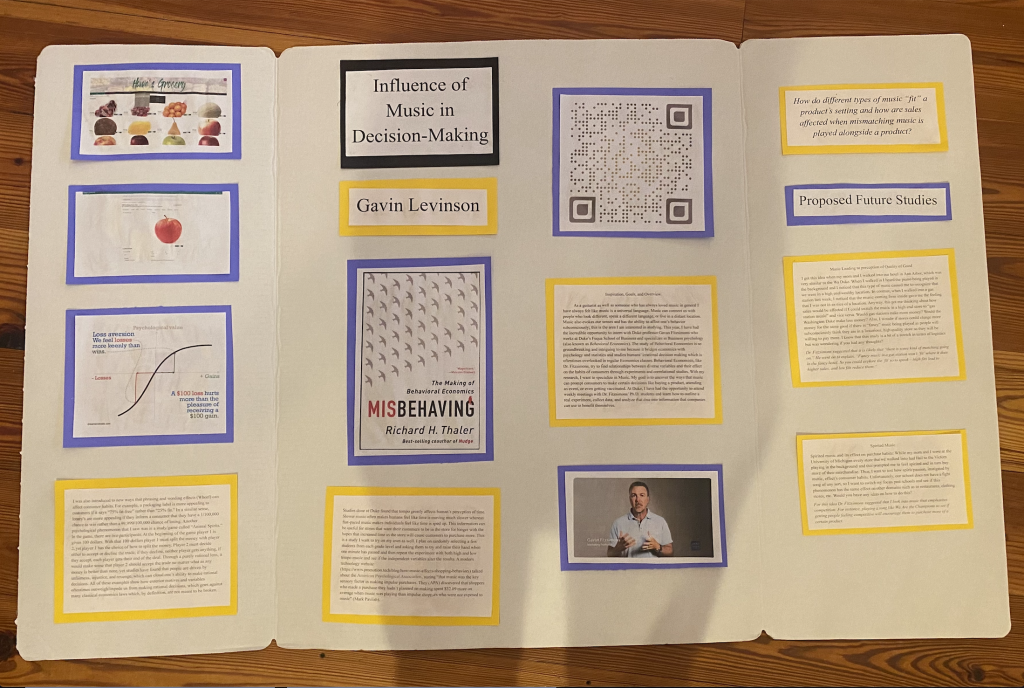Come Shopping!
I wanted to give you all an update on the work that I have been doing these last two weeks.
Internship and Studies:
As I shared last week, I presented some of my proposed study ideas in front of the Ph.D. students in Dr. Fitzsimons’ lab and got some really interesting feedback and resources. The Ph.D. students were very interested in the idea of luxurious music and its so called “fit” in luxurious settings like fancy hotels. They suggested that I test how music fits in a certain setting and what happens to sales when music is wrongly fitted to a certain setting. For example, playing Mozart doesn’t fit in a Football stadium, and playing loud “hype” music doesn’t fit in a library, so how would sales at a football game or memberships at a library be altered if I played misfitting music? We also talked about what constitutes as “fancy” music. We agreed that oftentimes music without lyrics and of a slower tempo is deemed as fancier. To make my studies more efficient, they also suggested that I start incorporating simulated studies into my research to make it easier and faster to collect data. Lucky enough, one of the students, Holly Howe, had created an online grocery store that was meant to simulate studies. In the store (https://openscience-onlinegrocery.com/experiments/388/conditions/455/edit – input “1” for the Qualtrics) you can alter the price, labeling, nutritional facts, time in store, products available, and a lot of other variables to help run an experiment in the mock store. The store has over 2,000 different food products and I am planning on using it for many of my future studies so that I can get more accurate data without many confounding variables, which has been an issue for me so far in the student store. The store is great because it allows me to collect data from case studies without needing for my participants to spend money. I will first be utilizing studies in the online store to reaffirm music’s overarching effect on total sales. I plan on doing this by getting a couple participants and saying that they have 10 minutes in the store to spend anywhere between $0-$50. For some of the participants I will be playing music and others not, at the end I will see which group on average has spent more money. I can replicate this experiment in a lot of ways to test other domains like “fit” which I described above. A few other ideas that I would like to test are:
- Does playing music with the word of a specific food cause people to purchase that food? For example, does playing Fruit Salad by the Wiggles cause people to buy more fruit?
- I would also like to reaffirm tests regarding music’s tempo. For example, if I play fast paced music will people spend less time in the store and vice versa?
- If I play music of a specific culture/vibe, for example “beach music” or “traditional Spanish music, will people be more likely to buy seafood or Spanish food?
Here is the official manuscript for how to work the online store:


Current Study:
I have also been continuing with my study at the Durham Academy student store. Last week, I collected data for my control week (store’s daily sales without music) and this week I have been playing instrumental music all day to see the effect that it has on the store over a longer duration of time than before. Here is the control/no music data (all of these days had food trucks during lunch and full tutorial periods):
Wednesday (3/23/22): $1129
Thursday (3/24/22): $1474
Friday (3/25/22): $1023
I will be sure to inform you of the store’s sales data from this week where music was played and compare the data next week.
For the school assembly this week I also made the following trifold to begin bringing all of my ideas together and sharing what I’ve learned with the student body:

Future:
After speaking with my advisors and presenting to Dr. Fitzsimons’ class at Duke’s Fuqua school I have decided to steer away from studying music’s effect on test taking amongst individuals with learning accommodations. That project seems like an entirely new field from my current research and while I would love to research that more in the future, I have come to the conclusion that it would be best for me to continue only looking at music’s effect on business/behavioral economics.
I am also going to be researching more about sensory marketing in the coming weeks and hopefully reaching out to Dr. Fitzsimons’ friend and accomplished professor, Aradhna Krishna, at the University of Michigan.
https://michiganross.umich.edu/faculty-research/faculty/aradhna-krishna
Thank you for taking the time to read my latest blog post. Please feel free to reach out if you have any questions!
Gavin, this is a real leap forward in your study! Collecting data from both real and simulated stores is awesome. I bet you’ll learn different things from each.
I’m looking forward to shopping in your store!
I love the idea of testing this in a simulated store and at our DA store, such a neat idea!. Can’t wait to see how this turns out.
-Dr. M